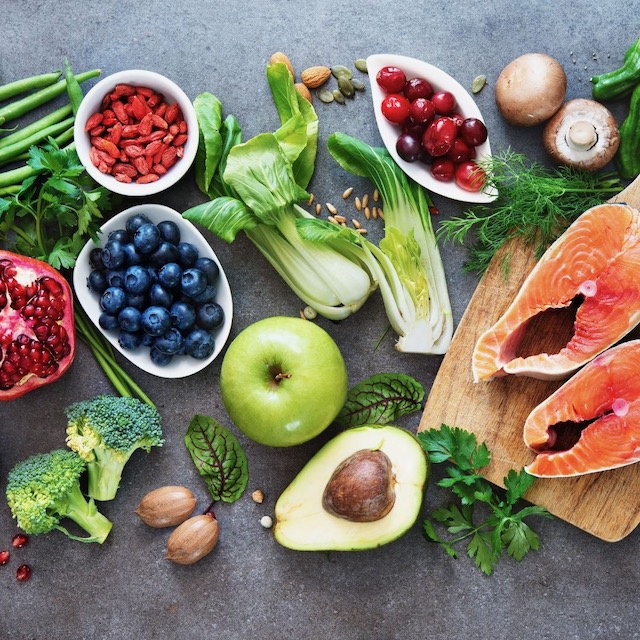While building healthy nutrition habits can benefit everyone, building specific nutrition habits around your symptoms can help those living with YOPD.
It’s no secret that eating whole foods and plant-based meals has benefits for everyone, but did you know that your food choices can impact the symptoms and progression of YOPD?
While there are no hard and fast ground rules for exactly what meals to eat and how to prepare them, there are guidelines that you can follow for both a healthier diet and to ease your symptoms. Here are some tips to help you build some personalized, healthy nutrition habits.
Drink Your Water
Drink 6-8 glasses of water per day and remember to take your medications with a full glass of water. Staying hydrated can help with digestive issues and ease constipation, and a full glass with your meds can help your body break them down more efficiently.
Vitamins & Minerals
Aim to fulfill your vitamin, mineral, and fiber requirements by eating plenty of whole grains, vegetables, and fruits.
To maintain bone health, you can introduce more Vitamin D into your diet by consuming milk products, egg yolks, and fatty fish. Check with your doctor to see what your Vitamin D levels are and whether you need more before making this dietary change.
Sugar, Caffeine, and Alcohol
Keep an eye on your sugar intake. While it’s calorie-dense and can fill you up for a short period of time, it has few nutrients.
While you don’t have to cut it out completely, drink alcohol in moderation. Cocktails contain little to no nutrients and may not be advisable to mix with certain medications. Check with your doctor to determine what’s best for you.
Limit how much sugar, alcohol, and caffeine you consume right before bed. The fewer of these in your system as you lay down, the better you’ll sleep.
Salt & Fat
Pay attention to and limit how much salt and sodium you consume — eating too much can increase your risk of high blood pressure.
Stay away from saturated fats and cholesterol to reduce your risk of heart attack and certain types of cancer.
Healthy Diet, Happy Brain
Eat antioxidant-rich foods, like brightly colored and dark fruits and vegetables. Why? Because antioxidants are important for your overall brain health.
To promote brain health, snack on walnuts and cashews. Salmon, Tuna, and dark, leafy green vegetables also have an ant-inflammatory effect on the brain.
Exercise
In addition to eating a balanced diet, make sure you’re getting enough physical activity.
Talk to your doctor and find out what a healthy weight looks like for you and try to maintain it. This reduces your chances of developing high blood pressure, heart disease, stroke, certain cancers, and common types of diabetes.
Dealing with the Challenges
With YOPD, you may notice that you’re eating less and losing weight. This is fairly common as a result of nausea from medications, movement symptoms making it difficult to eat, and difficulty swallowing. If and when you notice them, be sure to address these issues with your doctor.
|
Challenge
|
Solutions
|
|
Decreased Appetite
|
- Exercise to increase hunger
- Try eating bitter greens or spicy foods to stimulate appetite
|
|
Tremor, stiffness, and/or difficulty swallowing
|
- Opt for foods that are softer and easier to swallow
- Put your dishes on rubber mats to prevent them from slipping
|
|
Dehydration
|
- Eat foods with high water content, like celery, butternut squash, grapefruit, strawberries, and watermelon
|
Different combinations of these tips can work for different people, depending on your unique symptoms and experiences with YOPD. Be sure to consult your physician before making any drastic lifestyle or nutritional changes to make sure that you’re headed down the path that’s right for you.

